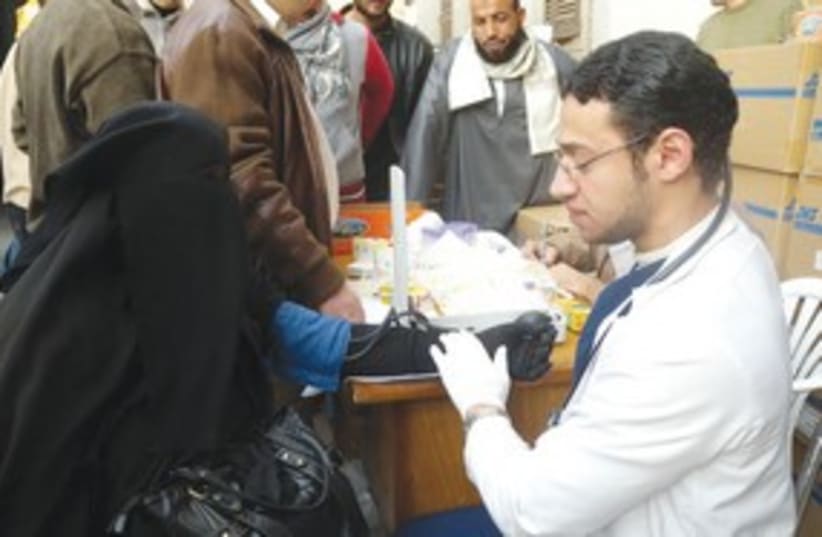Fighter jets swoop over Cairo protests in show of forceBackground: Who are the Muslim Brothers?Looting engulfs Cairo, other Egyptian cities
“This is blood for the country, because this is our country,” said Khalil Lefayoumy, sitting on a blood-spattered wooden bench with a bag collecting his blood laying on the ground near his feet. Lefayoumy is from a village outside of Cairo who was donating blood for the first time along with his friends.“This is not normal; many hundreds of people are coming,” said Dr. Ahmed Hemba, an internist at the hospital who was volunteering his time at the donor clinic. He said that when people understood that the police was using live ammunition and there were many victims with gunshot wounds, they started showing up at the hospital in droves to donate. “This is the true Egyptian people,” he said.As Cairo struggled into its sixth day of protests that have choked the city, regular Cairo residents attempted to restore order in a way that the paralyzed government could not. With traffic lights still not in order, at least a dozen men directed traffic at every intersection. Some were equipped with whistles, others had orange batons, but they were all unorganized volunteers who had simply shown up. The volunteers kept the traffic flowing relatively smoothly, which is no small feat in congested Cairo, though this was also due to a much smaller volume of cars on the road.The military tanks were another popular place for volunteers. Many civilians were helping the army with crowd control, directing demonstrators to stay on one side of the street or creating orderly lines so the military could check IDs and do a brief pat-down before demonstrators entered the main downtown square.The military’s presence in the city was a continued cause for celebration, with demonstrators hugging and kissing the soldiers, and showering them with free snacks and drinks. The Egyptian police, which are more closely associated with Mubarak, are widely feared for their brutality. But the demonstrators welcomed the military, who they perceive as more impartial.Other demonstrators grabbed trash bags and started cleaning up the downtown area, which has been ransacked over the past week.
